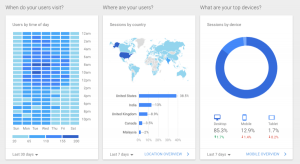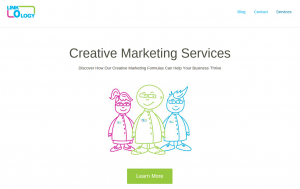
Google has just rolled out a new product called Customer Match. Google states that this is in response to consumer expectations for more immediate and relevant content. The new product specifically targets people that have provided an email address to a company. These email addresses can be uploaded to Google. Ads can be delivered when these folks are signed in with this email address to any of Google’s properties (YouTube, Google Search, Gmail, etc.)
Google believes that this is an important step because 70% of online consumers admit, “quality, timing and relevance of a message influences their perception of a brand.” (Google Blog) The idea is that people that already have a relationship with a business are more likely to want to hear more from that business, especially if it means a special offer or coupon.
This product seems to be Google’s answer to products already available on Facebook and Twitter. Facebook’s Custom Audience allows email lists to be uploaded, but also builds audiences from people who have visited a company’s website or accessed its mobile app. Twitter’s Tailored Audiences allows email uploads, mobile phone number, Twitter IDS or mobile advertising ID’s. Twitter also offers “Tailored audiences from web,” which targets people who have visited a company website. (Of course, Google already targets website visitors.)
Why Social Targeting is Good For Business
The “holy grail” of advertising has always been the goal of reaching the right audience at the right time to sell a product or service. In the mid-1950’s when daytime television became popular, the stories on TV were dubbed “Soap Operas.” This was because companies like Proctor & Gamble (Tide, Dawn and Ivory) knew that the main daytime audiences were housewives, interested in getting their laundry, their dishes – and their children – clean. Saturday mornings were programmed with cartoons; toy companies and breakfast cereals were the main commercial staple (much to the chagrin of some parents).
Google and other Social Media giants are merely taking consumer targeting a step further by giving companies the opportunity to market to people who have already expressed – at least to some extent – an interest in what they are selling. Even as advertising costs are sure to rise on these platforms, it is still far less than producing and broadcasting a television commercial that may end up being ignored by most of the viewers – or skipped altogether by people who use the commercial break to check their Facebook Pages.
Why Social Targeting is Good for Consumers
Television is a broadcast medium, and sponsors have no way of knowing exactly who will tune into programming at any given time. Money spent for a beer commercial during a football game may be wasted on fans who are teetotalers, or on a cat food commercial that is displayed to dog owners.
While the simple fact of sharing an email address or visiting a website may not be the deciding factor in whether someone will make a purchase from a specific company, it may be the best indication companies have about who might wish to buy from them. When consumers, who may be mildly interested in what a company is offering or are on the fence about a purchase, see a special offer, a coupon, or a compelling image, it could trigger the desired response – a sale.
Finally, as mobile becomes even more popular, and Google and other social sites continue to upgrade GPS technology, you may be out and about, look at your phone and see exactly the product you are looking for. You may then realize that the store that carries it is right in front of you. This might be the definition of a win/win proposition for both consumer and vendor.
Digital & Social Articles on Business 2 Community(97)
Report Post





